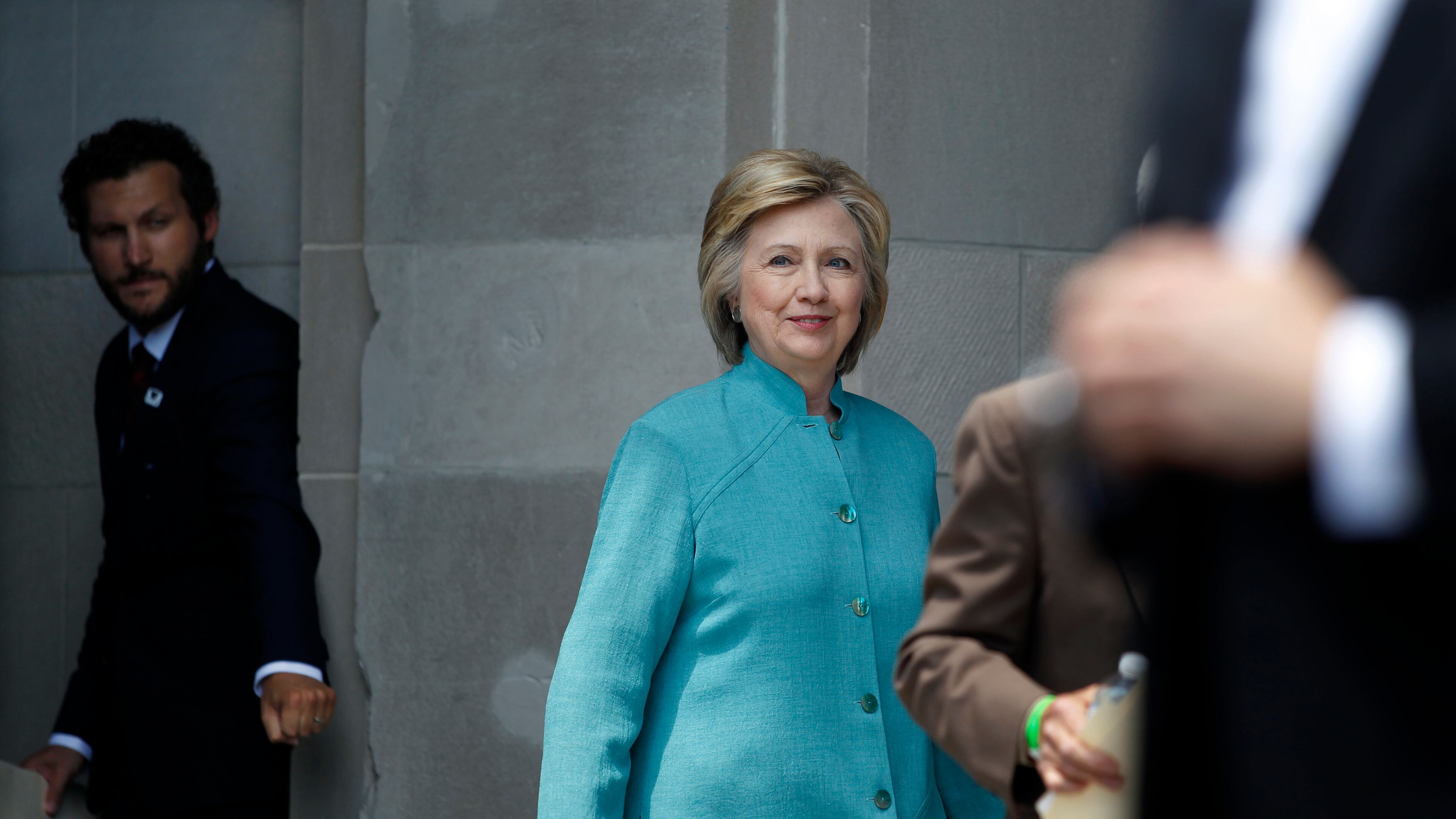Why Hillary Clinton's email scandal isn't likely to matter in November

Some 25 years ago, Edwin Edwards faced David Duke in a one-on-one contest for governor of Louisiana.
Edwards’ two previous stints as governor had been rife with corruption. But Duke was a former grand wizard of the Ku Klux Klan. As many of you recall, this was Edwards’ winning bumper sticker: “Vote for the crook. It’s important.”
If there are car bumpers large enough, we are likely to see something similar this fall: “Vote for the extremely careless former secretary of state who might have given hackers access to national secrets in a near-pathological effort to keep her personal life off the books. It’s important.”
Fresh polling suggests that it could work. Seriously.
On Tuesday, FBI Director James Comey announced he would not recommend criminal charges against Hillary Clinton, the presumptive Democratic presidential nominee, for maintaining private email servers as secretary of state. Even if she violated State Department policy and conducted highly sensitive government business on systems that were less secure than your own G-mail account.
But if there will be no criminal indictment, Comey’s statement made sure there would be a political one. Some excerpts:
— “There is evidence that they were extremely careless in their handling of very sensitive, highly classified information;”
— “[A]ny reasonable person in Secretary Clinton’s position… should have known that an unclassified system was no place for that conversation;”
— “We do assess that hostile actors gained access to the private commercial e-mail accounts of people with whom Secretary Clinton was in regular contact from her personal account.”
In the past, such searing criticism from the nation’s top law enforcement officer would have put a period at the end of any political career. But we don’t live in those times anymore.
Hillary Clinton’s email problems may not be over, but they have certainly peaked. And by November, they may not matter at all.
Several factors apply. In Donald Trump, Clinton has lucked upon a Republican opponent who at times, it seems, can’t locate his own self-interest with a fork and a hand mirror.
Even with President Barack Obama at her side in Charlotte, N.C., Tuesday may have been the worst day of Clinton’s elected political career. That is, until a few hours later, at a rally in Raleigh, when Trump veered off in praise of a dead Iraqi dictator.
“Saddam Hussein was a bad guy, right? But you know what he did well? He killed terrorists. He did that so good,” Trump said. “They didn’t read ’em the rights, they didn’t talk. They were a terrorist, it was over.”
On Thursday, House Oversight Chairman Jason Chaffetz, R-Utah, will bring the director of the FBI before his panel for questioning. But even that takes the spotlight off the Democratic presidential candidate, and could broaden “the system is rigged” suspicions in a way that may not be helpful to Republicans.
But the real reason Hillary Clinton’s emails won’t matter in November is that we live in a post-factual world.
We have spent the last year marveling over Donald Trump. He calls a U.S. senator who spent years in a POW camp in Vietnam something other than a hero, and his popularity shoots up.
He promises that Mexico will pay for the wall that keeps their people off our lawn. That he’ll deport millions upon millions of illegal immigrants. And institute a religious test for entry into the United States. All of this is unconstitutional or a logistical impossibility. But none of that matters, and now he’s the Republican nominee.
Hillary Clinton’s email scandal shows that there’s another side to that coin. Democrats, too, are now bona fide citizens of this never-mind-the-facts world. FBI findings included.
“Certainly, the report is pretty damning,” said Alan Abramowitz, an Emory University political scientist. “But in the end, it’s not likely to have any importance at all. Not long term. Maybe short term. Republicans despise Hillary Clinton. Democrats despise Donald Trump. That’s not going to change.”
At Emory, Abramowitz and a partner have spent the last several years documenting a shift in American political reasoning they have dubbed “negative partisanship.”
The old frame: Say you’re an Atlanta Braves fan. You love your team, and so root for them at any opportunity. Because you love them.
The new frame: You hate the Braves. Your own team is in the cellar and packed with misfits and has-beens, but that doesn’t matter. Because you hate the Braves so much that you’ll root for any team they play.
This is where we are in politics. Two extensive national polls have surfaced this summer, indicating that Abramowitz and his pals are on the right track. One was a Pew Research Center study that showed, for the first time in 24 years of polling, majorities of both Democrats and Republicans hold "very unfavorable" views of the other party.
More than half of Democrats, 55 percent, said Republicans make them “afraid.” Forty-nine percent of Republicans say the same thing about Democrats. Among activists, those numbers hit 70 percent among Democrats and 62 percent among Republicans, the Pew survey said.
If you’re so fearful of the loyal opposition, then it doesn’t matter what your candidate says or does. “I could stand in the middle of 5th Avenue and shoot somebody and I wouldn’t lose voters,” Trump said way back in January. Now we know there’s some truth to that.
The Trump campaign, by the way, could have its own extended bumper sticker this fall: “Vote for the thrice-married bankruptcy specialist and ‘two Corinthians’ Christian. It’s important.”
The conventions haven’t even begun, and already I feel a yearning to become a house painter. And I hate house painting.

